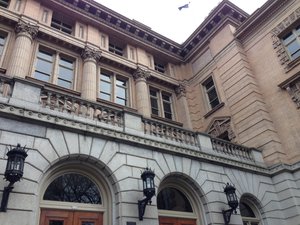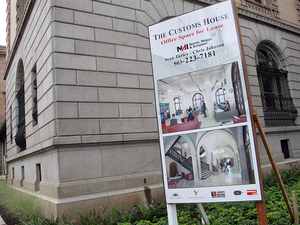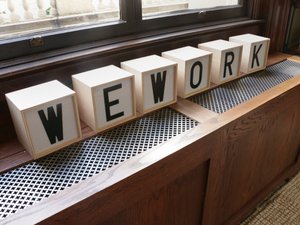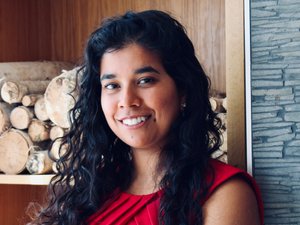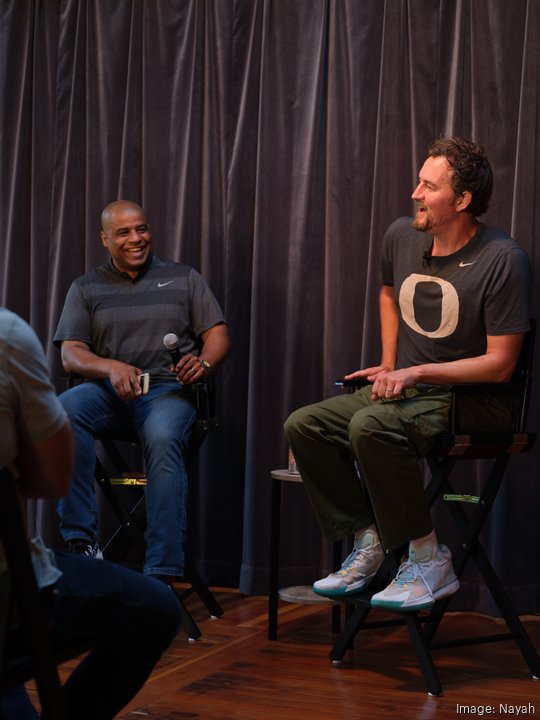
WeWork co-founder Miguel McKelvey was in Portland Tuesday night making the pitch for his latest startup before an audience of more than a dozen Pacific Northwest investors.
(Why here? Well, McKelvey has deep Oregon roots. He grew up in Eugene on what he has described in the past as a collective of single mothers raising their children together. He earned an architecture degree from the University of Oregon and in 2000 helped start the entrepreneurial peer network StarveUps.)
McKelvey and a team that includes several former WeWorkers want to change the way we look at aging, and how we build community and find support in our golden years, he said. It’s reminiscent of how, in his past life, he worked to redesign how an entire generation thinks about offices and relates to work.
The new company, called Nayah, is described as a social club, though the team recognizes the baggage of exclusion or class that the words social club carry. It’s designed for those over 55 years old as a place to socialize and find support on, for instance, navigating retirement and finances, learning new technology and tapping telehealth and mental health resources. It's all accessed without having to live somewhere billed as "senior living," which has its own connotations, he said.
“I like to do business that changes people’s perception of the way things are,” he told the audience. “How life is supposed to work. What happens after 60 or 65? This is an opportunity to go beyond building a company but participating in something really meaningful in our experience as humans.”
Like WeWork, Nayah has an app aspect. It plans to charge an annual membership fee, perhaps between $4,000 to $4,500 a year.
The first Nayah community hub is planned for New York, chosen because it's a place where the company has experience negotiating real estate deals and building out spaces. McKelvey said Nayah hopes to expand into other locations quickly.
While Nayah is laying the groundwork for fundraising, it will hit the gas on that effort once the first building is secured and improvements negotiated with the landlord.
With office vacancies at sky-high levels, it may seem like the right time to approach building owners with new use ideas. However McKelvey noted it's harder now to secure the bank financing needed to make improvements to these spaces.
McKelvey knows this is a capital heavy endeavor, but thanks to his experience from the rocket ship that was WeWork, he believes he knows how to do it responsibly now.
“This is capital-intensive. I’m smarter now on where to draw the line to tune business (and operations) to be successful,” he said.
As McKelvey pitches Nayah, he is navigating the baggage that comes along with his WeWork past. There are positive and negative aspects to the rapid rise and fall of WeWork’s star. He is intensely proud of the culture built within the company and its people.
He still has the drive to create, he told the crowd. But now, he wants to do it with more perspectives from the outset and not the mythologized two white guys in a room.
“We are not the heroes of the story. Building is a communal (action),” that shares not just the glory but the ownership and financial return, he said, adding that the founding team of Nayah is diverse in life experience.
WeWork initially pitched itself as a technology-enabled community builder to get a software valuation, McKelvey told the audience. Later it shifted to a more real estate heavy business and the later challenges of that transition became evident. It eventually achieved a $47 billion valuation before its failed IPO in 2019.
In this new venture, McKelvey isn’t necessarily targeting real estate investors. but is looking at investors that aren’t purely technology. One avenue: funds interested in aging, whole health or other emerging areas. The topics of how to age and how to care for ourselves and loved ones is already very personal for many investors the team has talked to, said Qiana Patterson, managing partner at Nayah.
“The relationship doesn’t have to be so binary. The business has an appeal to people who want to address the market because it’s important,” McKelvey noted.
According to the federal Administration for Community Living, older Americans are one of the fastest growing demographics in the country. In 2019, there were 54.1 million people over 65. That number is expected to hit 80.8 million by 2040.
It might seem unusual for McKelvey to pitch Portland investors on this new startup, since most local founders find they have to leave to raise significant money. He said he wanted to be better at connecting with a community he was part of early in his startup career.
“When I left Portland in 2004 I felt like there was little support for entrepreneurs. That was my lasting memory,” he said. “I missed opportunities to connect with people locally with WeWork, with this it became, ‘why not open the door?’”
